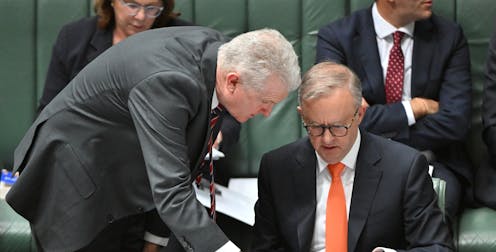Employers will resist, but the changes for casual workers are about accepting reality
- Written by John Buchanan, Professor, Discipline of Business Information Systems, University of Sydney Business School, University of Sydney

The Albanese government’s plan to improve the pathway to permanency for casual workers has employers worried, fearful their ability to employ casual workers will be restricted.
Even before the details had been released, there was certainty, in the words[1] of Australian Industry Group chief executive Innes Willox, that there “is simply no justification for further changes to the regulation of casual work”.
In support of this argument are statistics suggesting the casualisation trend has peaked. But that’s by no means certain: the most recent data from the Australian Bureau of Statistics shows casualisation climbing again, with an overall rate of 23.5%.
References
- ^ the words (www.theaustralian.com.au)
- ^ Albanese government to make it easier for casuals to become permanent employees (theconversation.com)
- ^ must be offered the option (www.fairwork.gov.au)
- ^ for more than a year (www.aph.gov.au)
- ^ regular hours and pay (www.aph.gov.au)
- ^ The truth about much 'casual' work: it's really about permanent insecurity (theconversation.com)
- ^ 2018 and 2020 (www.lexisnexis.com.au)
- ^ in 2021 (www.corrs.com.au)
- ^ in 2022 (www.minterellison.com)
- ^ What defines casual work? Federal Court ruling highlights a fundamental flaw in Australian labour law (theconversation.com)
- ^ says (ministers.dewr.gov.au)
Authors: John Buchanan, Professor, Discipline of Business Information Systems, University of Sydney Business School, University of Sydney










